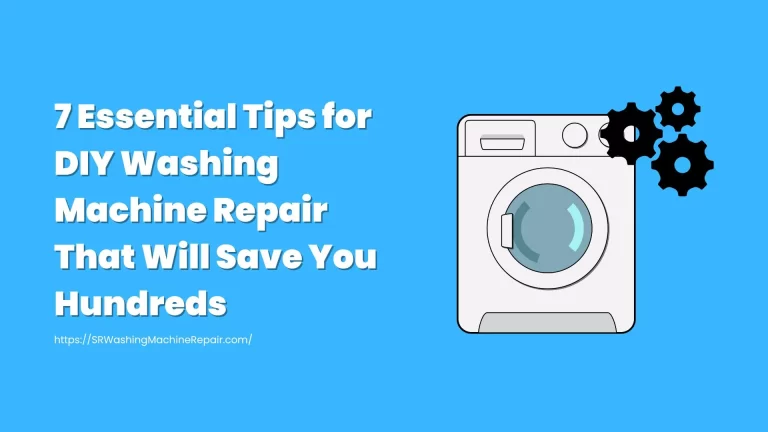
When it comes to washing machine repairs, there is an abundance of advice and information available. However, not all of it is accurate, and following common myths can lead to costly mistakes.
In this article, we will debunk some of the most prevalent washing machine repair myths to help you avoid unnecessary expenses and ensure the proper maintenance of your appliance.
Also Check:
Myth 1: Adding More Detergent Cleans Better
One common myth is that using more detergent will result in cleaner clothes. However, using excessive detergent can lead to several issues. It can create excessive suds that overflow and cause leaks.
Additionally, detergent residue can build up inside the machine, leading to clogs and affecting its performance.
Follow the manufacturer’s guidelines for detergent usage to ensure proper cleaning without any negative side effects.
Myth 2: All Leaks Require Professional Repairs
While leaks from a washing machine can be concerning, not all of them require professional repairs.
In many cases, leaks are caused by simple issues such as loose connections or worn-out hoses.
Check the hoses, inlet valve, and door seal for any visible signs of damage or misalignment. Tighten connections and replace faulty parts as necessary.
However, if the leak persists or you are unsure about the cause, it’s advisable to consult a professional technician.
Myth 3: DIY Repairs Void the Warranty
Some people believe that attempting DIY repairs on their washing machine will automatically void the warranty.
However, this is not true in most cases. The key is to ensure that you follow the manufacturer’s guidelines and recommendations for DIY repairs.
If you’re unsure, refer to the warranty terms and conditions or contact the manufacturer for clarification.
Many warranties actually encourage users to perform basic maintenance and minor repairs themselves.
Myth 4: All Noisy Washing Machines Are Faulty
It’s important to note that washing machines naturally produce some level of noise during operation.
However, not all noises indicate a fault or problem. For instance, during the spin cycle, you may hear the sound of the motor and the movement of the drum.
Excessive or unusual noises like banging, grinding, or screeching may signal an issue that needs attention.
Pay attention to any changes in the noise level or patterns and consult the manufacturer’s troubleshooting guide or a professional if necessary.
Myth 5: Repairs Are Always More Expensive Than Replacements
While it’s true that some complex repairs can be costly, it’s not always the case that repairs are more expensive than replacements.
In fact, many common washing machine issues can be resolved at a fraction of the cost of purchasing a new appliance.
Additionally, repairing your machine can extend its lifespan, saving you money in the long run.
Evaluate the nature of the problem, consider the age and condition of your machine, and compare the costs of repair versus replacement before making a decision.
Conclusion
By debunking these common washing machine repair myths, you can make informed decisions when it comes to maintaining and troubleshooting your appliance.
Avoid the pitfalls of using excessive detergent, misjudging leaks, assuming DIY repairs void warranties, misinterpreting normal machine noises, or automatically assuming replacements are always cheaper.
Take the time to educate yourself about proper maintenance and repairs, refer to reliable sources, and consult professionals when needed.
By separating fact from fiction, you can save money, ensure the longevity of your washing machine, and keep it running smoothly for years to come.

